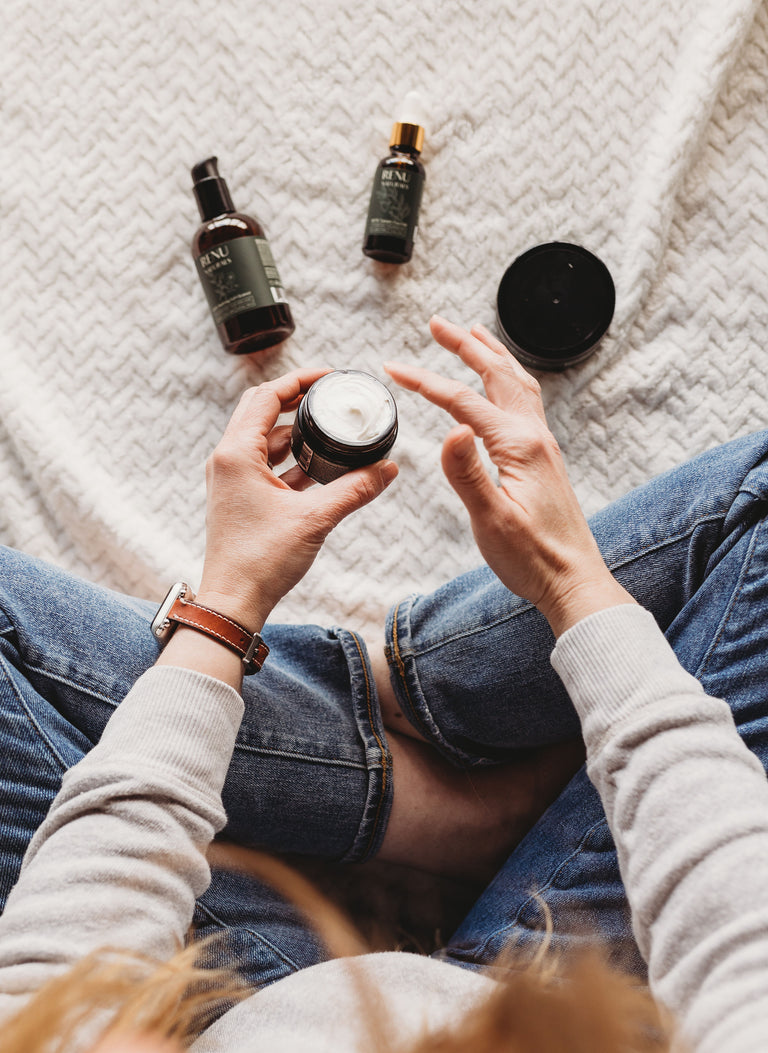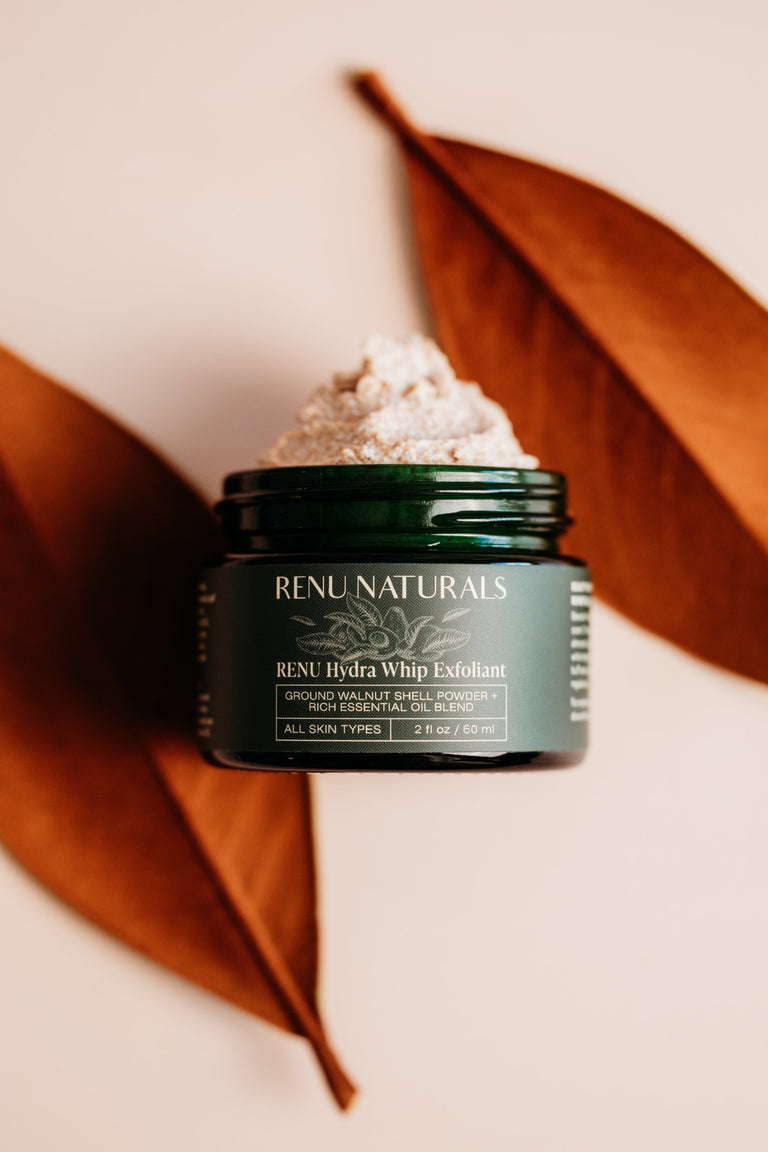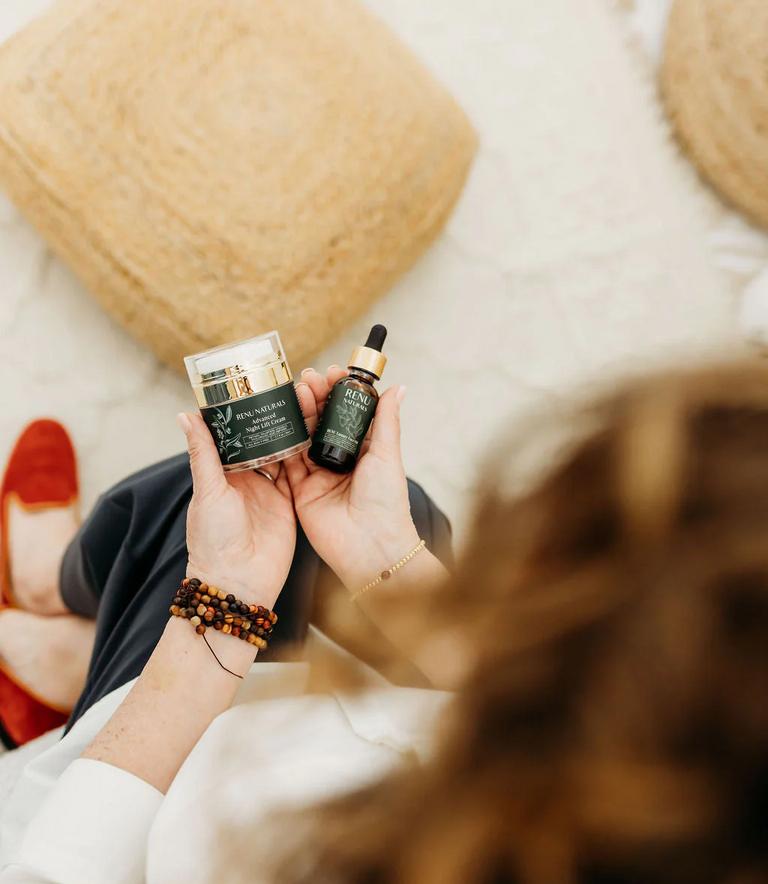Are you constantly searching for the ultimate serum or cream that promises to help fight signs of aging? Collagen is the latest must-have ingredient that is featured in so many products, including supplements, collagen-rich creams, and skincare treatments that promote collagen production. But why is collagen so vital to us? We have some answers that will take the mystery out of collagen and help bring back that youthful skin.
The role Collagen plays on our skin.
As a person ages, their body naturally produces less collagen which results in the common signs of aging. Wrinkles, sagging skin that has lost its elasticity, and stiff joints are all signs that the body is producing less collagen. When collagen levels are high, the skin is soft, smooth, and firm. Collagen helps the skin cells renew and repair themselves, and helps keep the skin moist. Current trends and products in the beauty market are a result of extensive research on how we can repair and re-stimulate the production of collagen in our skin to slow down aging.
Collagen and Why It’s Important for Skin
Collagen is an abundant protein in our body. It makes up 75 percent of skin’s support structure and is an essential building block of bones, skin, ligaments, and muscles. It is also a part of blood vessels, teeth, and corneas. In essence, collagen fibers provide structural support to tissues and hold everything together.
But as we age, collagen production tends to slow down and eventually breaks down due to external factors such as our lifestyle, diet, environmental exposure, and stress. This leads to a loss in elastin and collagen fibers and our skin starts to sag with fine lines and wrinkles developing. But there is some good news! By adjusting our diet to include collagen-rich foods AND using products that stimulate collagen production can help skin to boost its collagen levels.
Tips on Boosting Collagen Production
Simply adding certain foods to your diet, taking a daily supplement, and adding a new practice to your daily skin routine can help in the efforts to boost collagen production.
- Hyaluronic Acid - found in foods rich in amino acids, such as beans, root vegetables, and soy.
- Vitamin C - The human body cannot make Vitamin C, so eating citrus fruits, green leafy vegetables, papaya, strawberries, and broccoli PLUS adding it topically is how to get this source.
- Aloe Vera - aloe actually stimulates the production of hyaluronic acid and collagen, both topically and in a supplement form.
- Ginseng - increases the amount of collagen in the bloodstream and has anti-inflammatory and anti-oxidative properties. Researchers also noted that ginseng might have the potential to stop skin cells from aging. Found in the form of tea, tinctures, and supplements.
- Garlic - may add more than just flavor to your meals. It could boost your collagen production, too. Garlic is high in sulfur, which is a trace mineral that helps synthesize and prevent the breakdown of collagen.
- Beans - are a high-protein food that often contain the amino acids necessary for collagen synthesis. Plus, many of them are rich in copper, another nutrient necessary for collagen production
- Tomatoes - Another hidden source of vitamin C, one medium tomato can provide up to almost 30 percent of this important nutrient for collagen.
- Antioxidants - fight free-radical damage and protect and rejuvenate the skin. Blueberries, green tea (or EGCG, its active component), yerba mate, licorice extract, mulberry extract, pomegranate extract, coffee extract, astragalus, cinnamon, basil, oregano, and thyme essential oils.
- Retinol - helps to increase the lifespan of collagen, as well as block certain enzymes that destroy collagen, making it a perfect addition to many skin care formulas
- Red Light Therapy - Red light therapy, or low-level laser light therapy (LLLT), has been shown to increase collagen growth and improve wrinkles and skin elasticity. Red light therapy is a non-invasive method of boosting collagen that has no side effects.
- Protection from the ENVIRONMENT- Harsh weather, pollution, sun exposure, and even dust particles can damage the skin. The damaged cells have to be replaced, which reduces collagen levels even more. An easy solution to this is to simply keep the skin clean. Washing and exfoliating can help to protect the collagen already in the skin PLUS protecting the skin from the SUN is imperative. Try our Hydra Whip Facial Exfoliant to hydrate, polish and renew skin cells!
Topical Ingredients That Boost Collagen Production in the Skin
Vitamin C- Collagen is a product of two amino acids: glycine and proline. This process requires the use of vitamin C. Vitamin C is found in the top layers of our skin: the dermis and epidermis. The topical application of vitamin C provides protection and fights DNA damage from the environment. As mentioned before the two enzymes: prolyl hydroxylase (proline) and lysyl hydroxylase stabilize the collagen molecules and give strength to the cross-linked structure of fibers respectively. The presence of vitamin C in this synthesis leads to stronger collagen fibers, which can translate into more tone and tautness in the skin.
Renu Naturals Nourishing Night Cream contains vitamin C to boost collagen production while firming and tightening your skin. It also contains Green Tea which has antioxidants that may help collagen renew and rejuvenate
Hyaluronic Acid- Hyaluronic Acid is a carbohydrate found naturally in our body’s tissues. It is responsible for supporting skin cell renewal, for increasing skin elasticity, for boosting collagen production, and for keeping our skin plump, soft and smooth. Hyaluronic Acid works by binding and holding water and by improving the moisture of our skin, HA gives it a more youthful appearance making it soft and supple, and making fine lines and wrinkles less apparent. Plant-based Hyaluronic Acid is extracted from microbial fermentation that comes from “Cassia Angustifolia”, also known as Senna, a polysaccharide-rich plant native to India, which simultaneously fills out fine lines and provides rich moisture.
Renu Naturals Luxury Face Oil has a perfect blend of plant extracts along with vitamin E and carrot seed oil, definitely earning a spot on your vanity. This blend including eight plant oils along with vitamin E and botanical Hyaluronic acid improves elasticity in the skin. Your skin will appear youthful, radiant, and smooth.
Niacinamide- Consuming vitamin B3 through diet has ample health benefits, so it’s no surprise that topical application of niacinamide greatly benefits the skin as well. By improving skin health on a molecular level, niacin improves the overall appearance of skin. When skin is damaged or compromised, niacin boosts collagen synthesis, giving skin a healthier, plumper appearance.
And what needs this boost more than the thinning skin around the eyes! Renu Naturals has infused this miracle ingredient derived from mushrooms into our Repair Eye Cream. In addition, we've also added raw avocado oil into our formula. Studies have found that the essential fatty acids and oleic acid in avocado oil can promote collagen synthesis, which is the process of creating new connective tissue. Collagen is nature’s way of preserving youthful skin naturally, so anything that can boost collagen levels is a holy grail ingredient in our book!
Retinol- Retinol is a form of Vitamin A and is great for your skin. It has so many benefits and has been known to help with acne, helping to reduce the signs of aging and sun damage. As we age, our skin cells turnover and our collagen production may slow down. When using retinol, it may help give your skin cells a boost and speed up cellular turnover and produce collagen production.
Our Repair Eye Cream is also formulated with retinol to help tackle fine lines and wrinkles, dullness, dark spots and dehydration around the eyes. The retinal will stimulate collagen production to help you combat those pesky signs of aging!
How to AVOID Collagen Breakdown?
Cut down on Sugar: Sugar damages your skin through a natural process called glycation. The sugar in your bloodstream attaches to proteins to produce harmful free radicals called advanced glycation end products (AGEs). As AGEs accumulate (the more sugar you eat, the more you develop), they damage the proteins around them. AGEs make your collagen and elastin stiff, dry and brittle, zapping them of strength and spring. The effects are seen on your complexion in the form of fine lines, sagging and wrinkles. Sugar is known to interfere with collagens' ability to repair itself.
Sun exposure: One of the most common causes of reduction in collagen production is exposure to the sun. Sun damage slows down the rate of skin cell renewal, causing a build-up of old, dead skin cells that result in dull, congested skin. It can also cause stubborn pigmentation marks or brown spots. Sun damage can destroy the collagen and elastin in your skin too. Collagen is a protein that retains the firmness of your skin and elastin is the support fiber that allows skin to bounce back. Collagen and elastin degradation in the deeper skin layers can result in premature signs of skin aging, such as wrinkles and fine lines, because your skin loses its elasticity and firmness.
Quit Smoking: We've all heard that cigarette smoking is harmful to our health, but the chemicals found in tobacco, in addition to the lack of nutrients and oxygen, causes collagen and elastin to break down. That’s bad news considering collagen and elastin give our skin strength and elasticity -the not-so-optimal result: sagging skin, lax blood vessels, and uneven skin coloring.
Now that we understand the invaluable role collagen plays on our skin, maybe we will be more aware of the need to combine a diet rich in antioxidants with the use of Renu Naturals beneficial skincare products to reduce the effects of its loss. We might not be able to achieve eternal youth, but we can live with healthy skin for more time.



